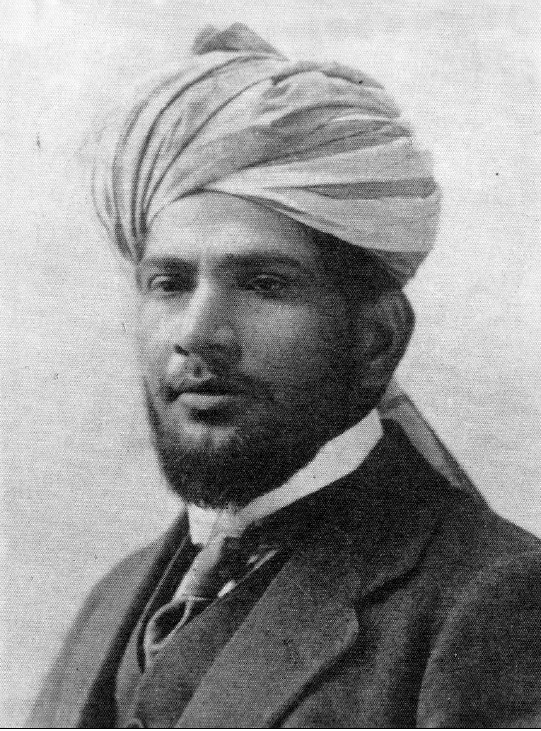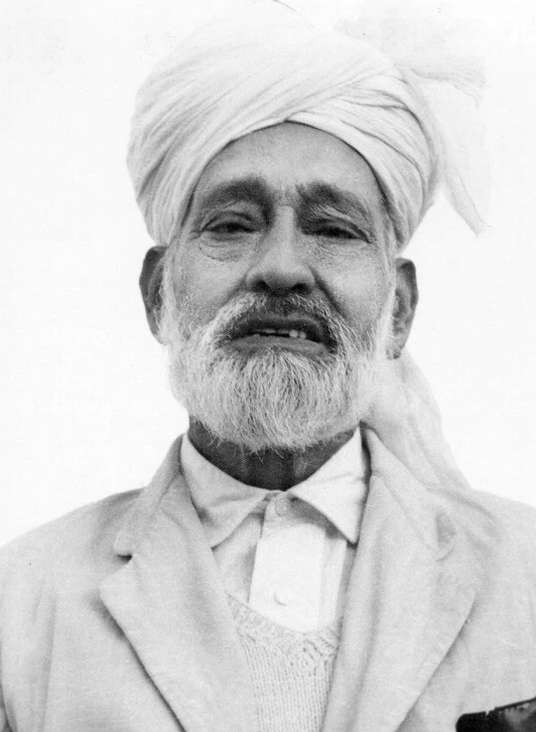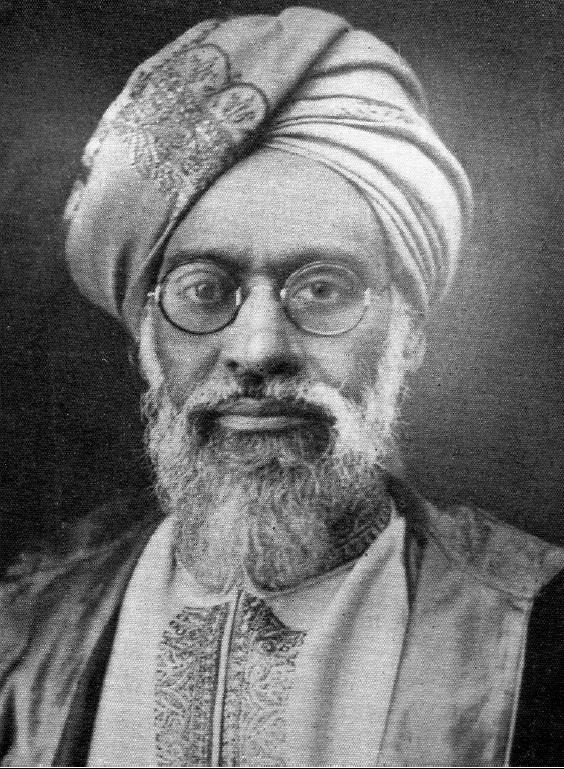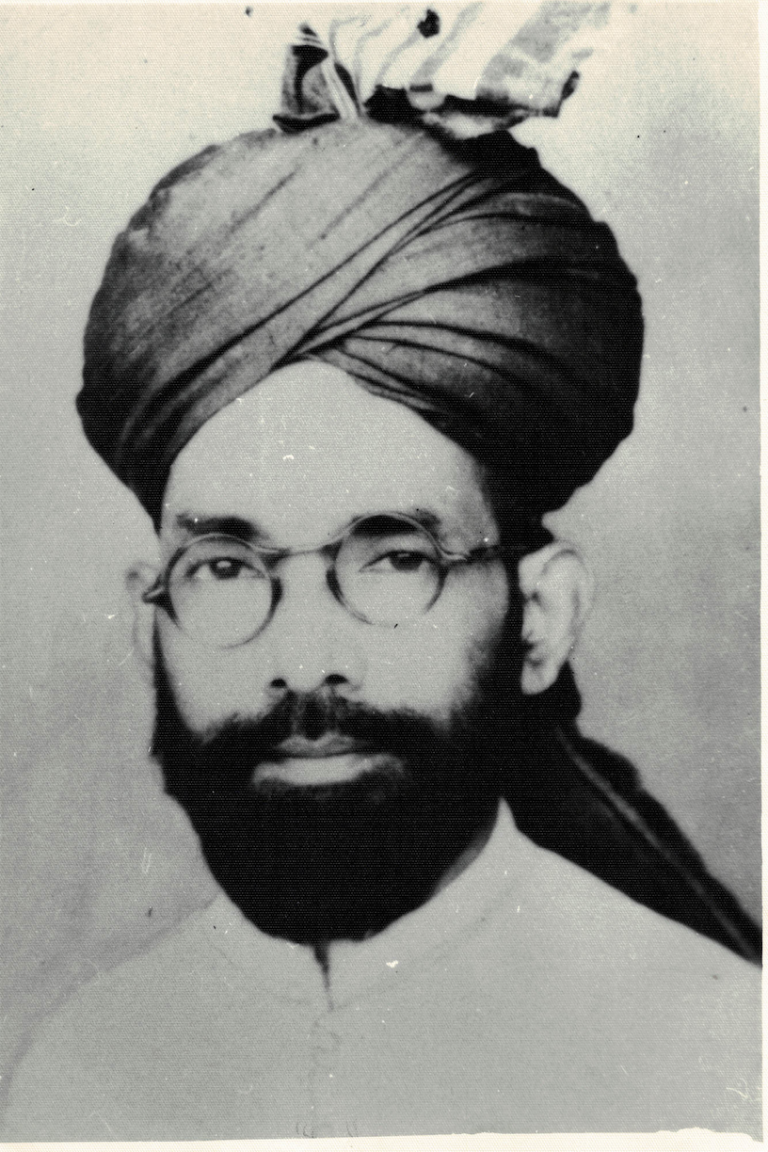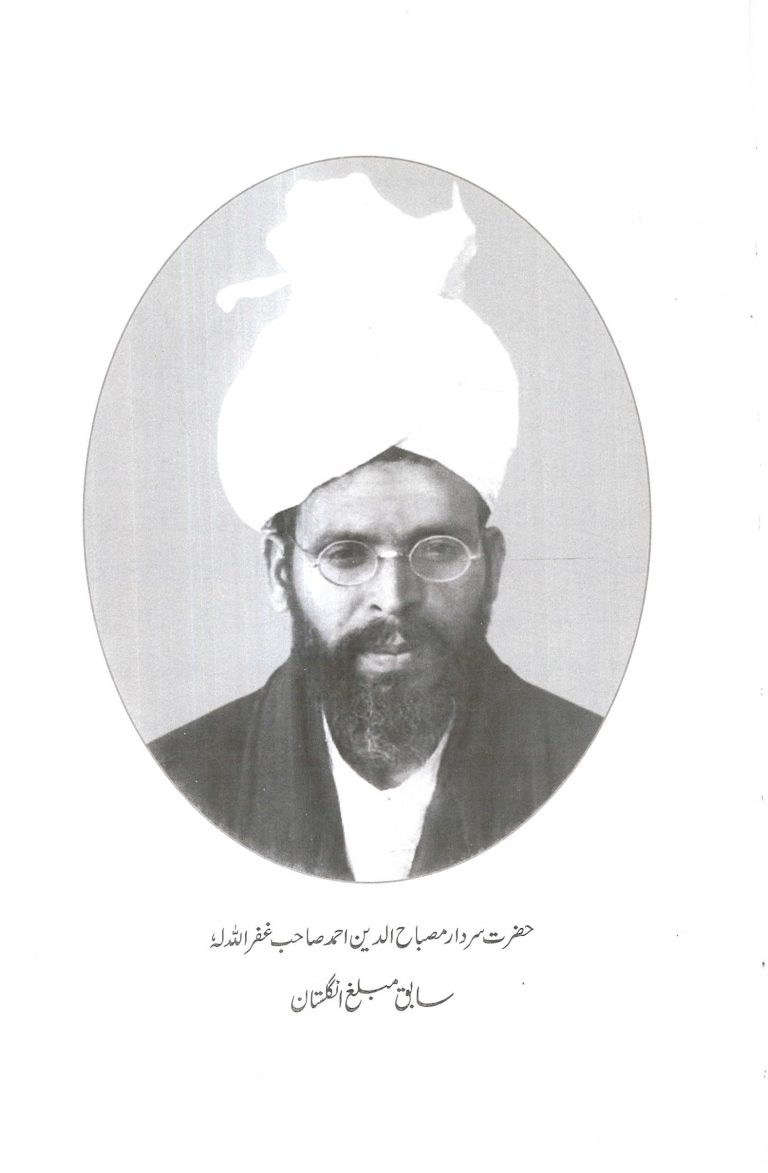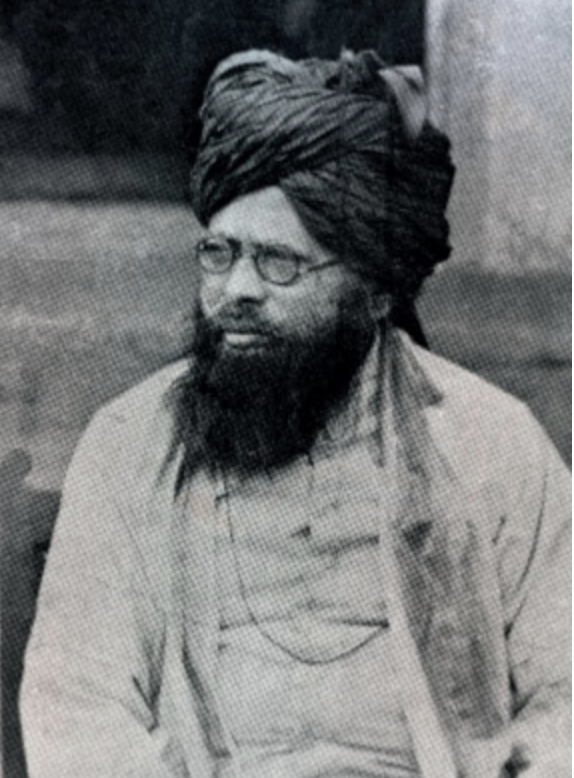Hazrat Maulana Abdur-Rahim Sahib Dard is a prominent figure in the history of the dissemination of Islam in the Western world. This notable missionary, affiliated with the Ahmadiyya Muslim community, was born on the 19th of June 1884 in Ludhiana and passed away on the 7th of December 1955. His father, Master Qadir Baksh Sahibra, was born on the 16th of August 1870 and departed from this world on the 10th of July 1923. Master Qadir Baksh Sahibra entered into the covenant (Bait) in 1892 and had the privilege of being counted among the 313 esteemed companions of the Promised Messiahas. He held a profound love for the Promised Messiah and remained steadfastly loyal to him. Hazrat Maulana Abdur-Rahim Sahib Dardra was named Rahim Baksh at birth, but later, the second Khalifa, Hazrat Mirza Bashir-ud-din Mahmood Ahmadra, changed it to Abdur-Rahim. During his childhood, Dard Sahib had the esteemed privilege of receiving the guidance of the Promised Messiahas.
Thus, Maulana Abdur-Rahim Sahib Dard, having established companionship with the Promised Messiahas in his formative years, proceeded to emulate the noble examples set by revered saints and dedicated his entire life in service to Islam. Notably, Dard Sahib took the momentous step of becoming a waqf (a dedicated servant) during the tenure of the second Khalifa.
(Seerat Hazrat Maulana Abdul Raheem Sahib Dardra, page 1 and Tareekh-e-Ahmadiyyat, Vol 18, Pages 239-240)
Dard Sahib pursued his education initially in Ludhiana and subsequently furthered his studies in Lahore and Patiala. Concurrently, he dedicated considerable time to engage in sporting activities while balancing his academic commitments. It is worth recounting an incident wherein Dard Sahib’s glasses inadvertently broke, rendering him unable to participate in a match. Upon learning of this setback, the Principal promptly repaired his glasses and remarked, “He is not only outstanding in the playground but also excels in the classroom.”
(Seerat Hazrat Maulana Abdul Raheem Sahib Dardra, Page 28-30)
Living in Qadian and his service
In 1919, Dard Sahib made the ultimate sacrifice by dedicating his life to the service of Islam and became a waqf. This marked the commencement of a phase in his life that would leave an indelible imprint on the annals of Ahmadiyyat’s history. Upon his arrival in Qadian, the Promised Son, Hazrat Mirza Bashir Uddin Mahmood Ahmadra, appointed him as a committee member of Madrisa Ahmadiyya. Subsequently, in 1920, he was bestowed with the role of private secretary, which was previously known as Afsar Daak but underwent a nomenclature change to “private secretary” during Dard Sahib’s tenure. He fulfilled this position dutifully until 1924.
Dard Sahib’s stay in England
On the 24th of August 1924, Dard Sahib accompanied the second Khalifa to London. During his sojourn in London, Hazrat Mirza Bashir Uddin Mahmood Ahmadra appointed him as the Imam of Masjid Fazal on the 4th of October 1924. From 1924 to 1928, Dard Sahib served as the missionary in charge, and he was later entrusted with the same responsibility in 1933. When the construction of the mosque was completed, Dard Sahib extended an invitation to Shahzada Faisal for its inauguration, which was initially accepted. However, due to the opposition faced by the community, Shahzada Faisal regretfully declined the invitation. Consequently, Dard Sahib sought permission from His Holiness to invite Sir Abdul Qadir, who gladly accepted the invitation. Thus, on the 3rd of October 1926, the inauguration ceremony of Masjid Fazl took place, graced by the presence of distinguished guests such as Lords of England, Members of Parliament, Ambassadors, and several Maharajas of Hindustan. The event received comprehensive coverage in the English newspapers.
In 1925, a London newspaper called The Star published a cartoon that insulted the Prophet Muhammad (peace be upon him). Dard Sahib organized a protest against this blasphemous act, urging not only newspapers but also ambassadors from Islamic countries to join in the protest. This collective effort had a profound impact, leading the editor of the newspaper to offer an apology. Dard Sahib also embarked on visits to various countries, including Holland, Belgium, France, Spain, Austria, and Albania. In 1927, an offensive book titled “Muhammad” (PBUH) was published in England, wherein the Holy Prophet (peace be upon him) was subjected to derogatory remarks. Maulana Dard initiated a robust campaign against the book, which resulted in the British government banning its distribution in Hindustan. Dard Sahib’s noteworthy endeavors garnered significant attention in Indian newspapers.
During his stay in England, Hazrat Khalifatul Masih al-Thani decided to relocate the Review of Religions to London and appointed Dard Sahib as its editor. The magazine was published in London starting in 1925 until July 1931. Dard Sahib also launched a weekly newspaper called “Muslim Times” from London. Additionally, a magazine titled “Islam” was published with the support of Hazrat Sahibzada Mirza Nasir Ahmad Sahib (Khalifatul Masih III), who resided in Britain for educational purposes during his youth. Upon the special instructions of Hazrat Khalifatul-Masih Al-Thani, Dard Sahib held several meetings with Qaid-e-Azam Muhammad Ali Jinnah, who was residing permanently in London at that time. These meetings aimed to persuade Qaid-e-Azam to return to Hindustan and provide guidance to the Muslim community. Qaid-e-Azam also delivered a speech on India’s independence at Masjid Fazal, London, in which he acknowledged Dard Sahib’s contributions, stating:
“The eloquent persuasion of the Imam left me no escape.”
While residing in England, Dard Sahib successfully finalized the manuscript of his book titled “The Life of Ahmad,” which was subsequently published. Additionally, he fostered strong connections with Members of Parliament, Lords, and distinguished English writers, thereby establishing meaningful relationships with prominent figures in British society.
(Al-Fazl, 23rd December 2013, Page 4)
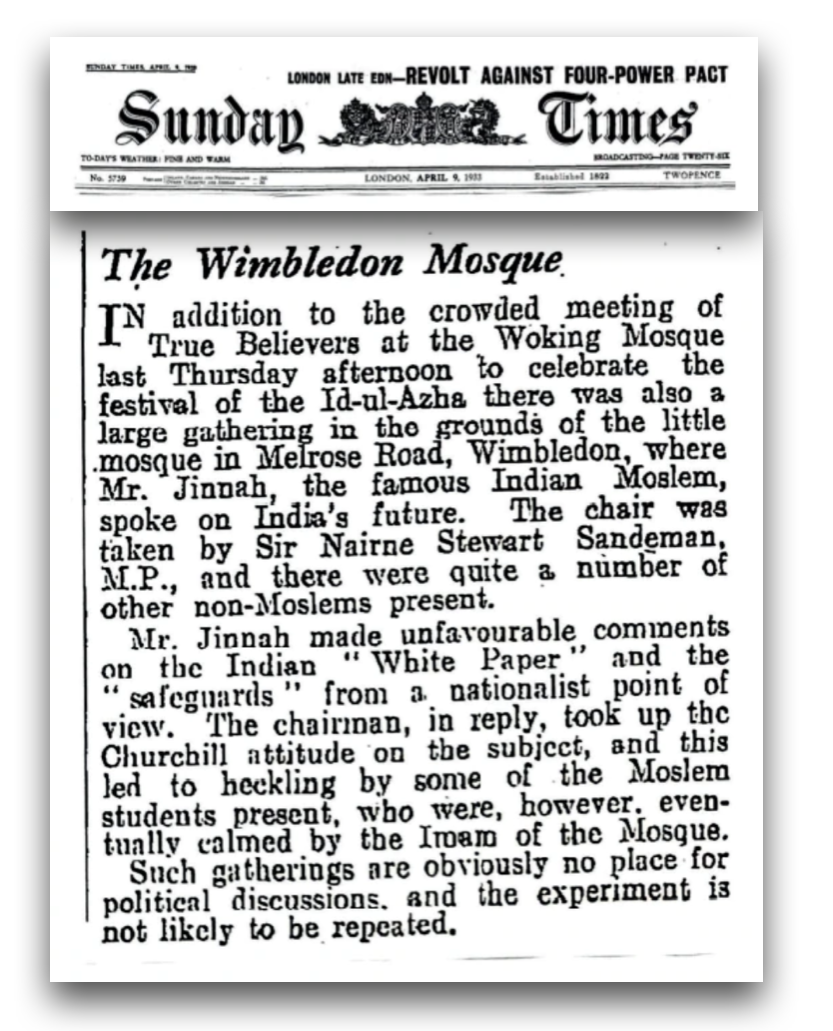
Maulana Dard Sahib received notable recognition and accolades from various sources during his time in England. The Sphere Newspaper, on the 9th of October 1926, acknowledged him as a remarkable individual who was accomplishing great deeds in the world. Similarly, on Saturday, the 16th of October 1926, he was once again introduced and highlighted in a publication, further emphasizing his significant contributions and endeavors.
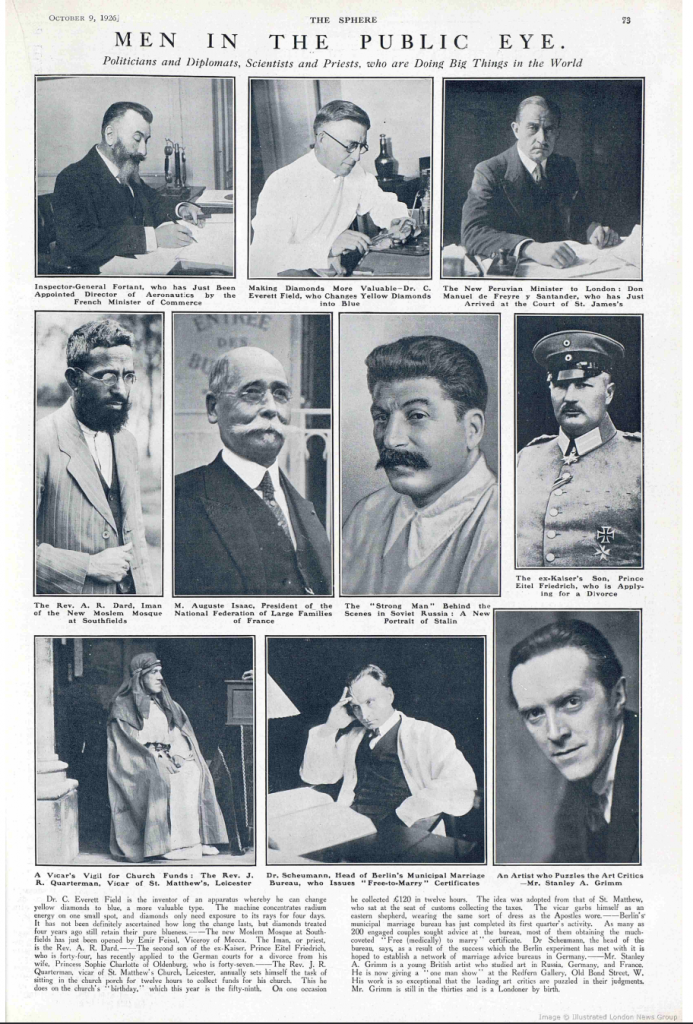
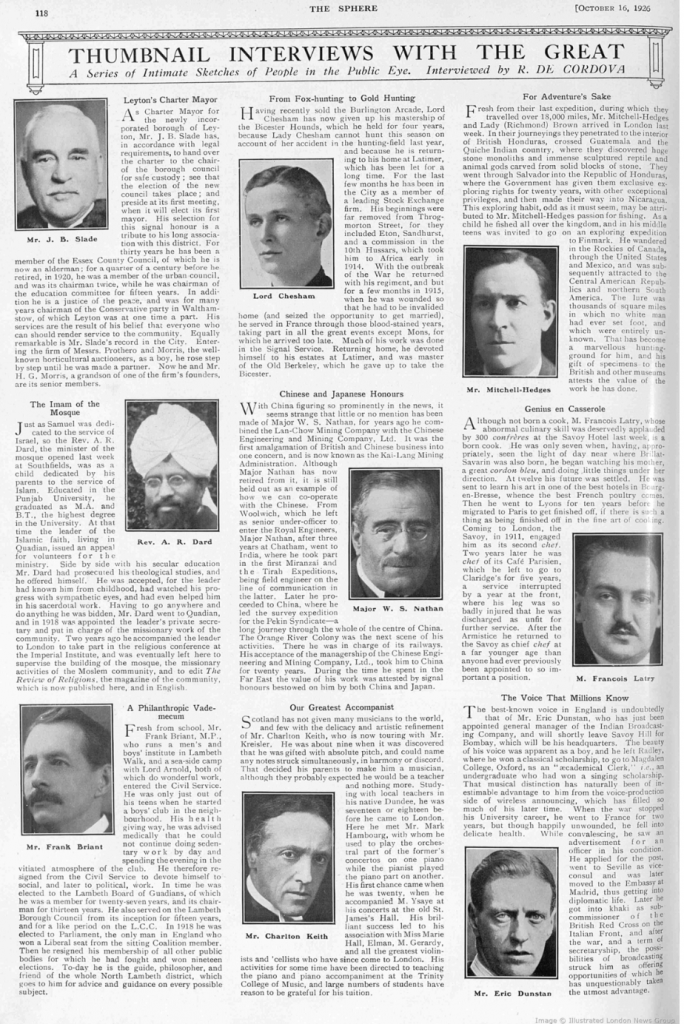
In addition to his extensive preaching and religious engagements, Maulana Dard Sahib maintained a steadfast commitment to academic research throughout his life, resulting in the authorship of several noteworthy books in both English and Urdu languages. Among these publications, “Life of Ahmad,” “Islamic Caliphate,” “The Glory of Muslim Woman,” and “Founding Chain Ahmadiyya and the British” hold significant prominence. The volume titled “Life of Ahmad,” encompassing the biography of the Promised Messiah (peace be upon him) stands out as a substantial work. Furthermore, Maulana Dard Sahib’s literary contributions extended beyond this comprehensive literature, encompassing additional publications such as “Islami Album,” “Al Huda,” “History of Andalusia,” and “Roidad Jalsa-e-Jubilee.”
(Tareekh-e-Ahmadiyyat, Vol 18, Page 242)
On the 7th of December 1955, Dard Sahib peacefully passed away. The following day, on the 8th of December 1955, Hazrat Musleh Maoodra, the second successor of the Promised Messiah (peace be upon him), led the funeral prayer (Janazah) for Dard Sahib in Bahishti Maqbarah.

